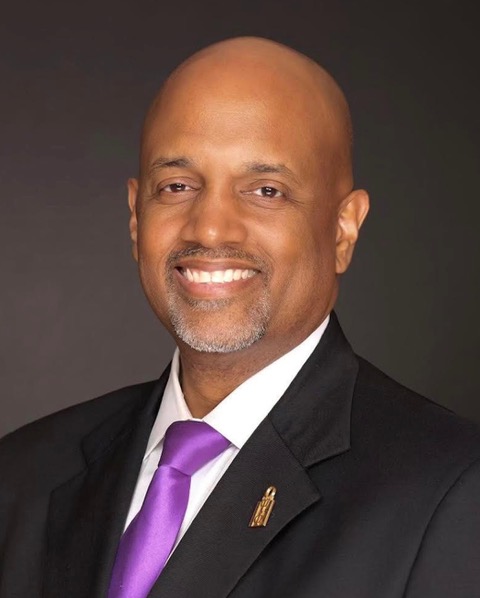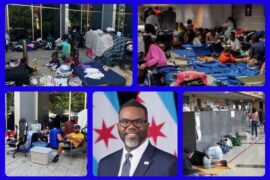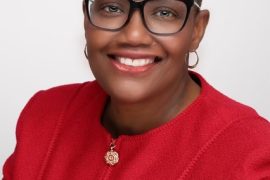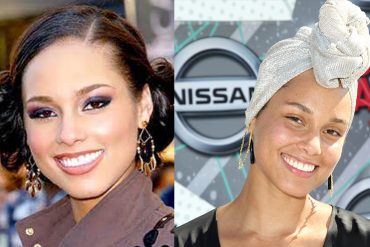In the Chicago Crusader office sat Clayton Harris III. Dressed in a dark blue suit, he looked immaculate and rested before starting another busy day on the campaign trail.
That morning was the perfect time for an interview. At ease and calm, he seemed at home at a Black newspaper, with people who look like him. There were plenty of doughnuts to eat, but Harris passed on the refreshments, careful of his diet, which has helped him keep a lean frame.
The day before the Crusader interview, Harris hosted a press conference at Federal Plaza in the Loop to express his disgust at the millions of dollars Republican donors are pouring into his Democratic Party opponent for the Cook County State’s Attorney’s seat, Eileen O’Neill Burke.
At the time of the interview on Tuesday, March 5, Burke had raised over $2 million for her campaign. Harris was far behind with just $724,000 in campaign cash.
Then there are those nasty political ads on television. Harris isn’t happy about those either. They accuse Harris of being “a political insider” and “an anti-union corporate lobbyist.” His two Black sons have seen the ads too. They asked their dad about them.
Reality is setting in for Harris. He has a lot of work to do. Seeking an elected office for the first time, his name is not as big as Burke’s, a former Appellate Court judge and prosecutor.
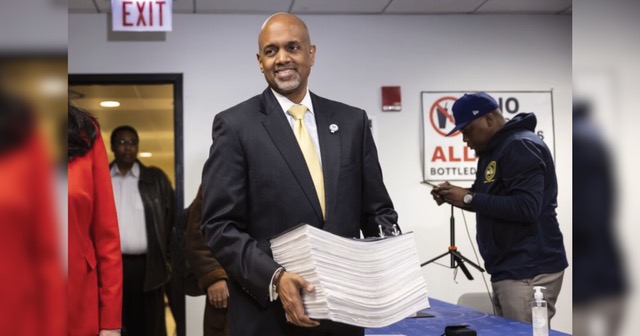
In addition to fundraising challenges, Harris is scrambling for votes across Cook County, where many people have never heard of him before he decided to enter the high-profile race for Cook County State’s Attorney, the county’s top prosecutor.
Big money cash donations are nothing new in Cook County politics, but they are to Harris, a former prosecutor himself who now teaches a public policy class at the University of Chicago.
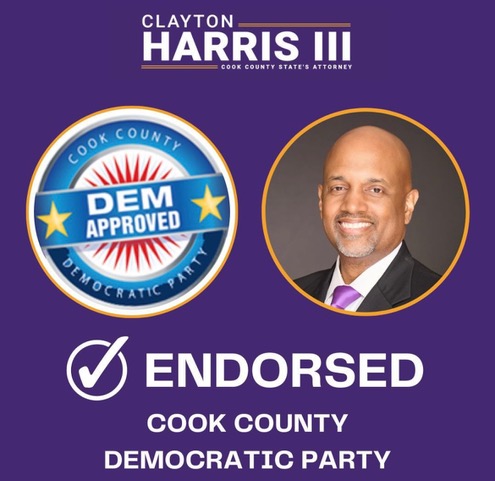
Harris is aware that he’s not just a candidate for Cook County State’s Attorney. He’s a Black man seeking to become the County’s third Black top prosecutor after Cecil Partee and Kim Foxx. But in a racially charged political climate in Chicago and America, political races are harder and fraught with tension.
Many people are used to seeing Black men like Harris being arrested and locked up in the Cook County jail. Harris’ race and gender have given him insight and a closer connection to the Black struggle in Cook County’s notorious criminal justice system.
His vision for the system is fueled by his concern for the future of his 9- and 11-year-old Black sons.
The pressure is on for Harris. The increasing opposition from Republican donors and a divisive campaign have not made this campaign easy. He must appeal not only to Chicago voters, but to white suburban towns in Cook County that have grown weary of crime and dislike Foxx’s leadership.
Running against Burke, Harris is going to need a chunk of those voters to beat her in the Democratic Primary.
That means Harris must walk a tightrope in his campaign message to appeal to voters who don’t look like him and who are still reeling from the controversial Illinois Safety-T Act, sweeping legislation passed in 2021.
That law eliminates cash bail, and judges can no longer require people to pay money to leave jail while they await trial. Prosecutors across Illinois filed lawsuits, but as crime continues to rock affluent neighborhoods, concerns and tensions linger.
In the middle of this climate is Harris. As he struggles to present himself as the best candidate for all voters running as a Black man for Cook County State’s Attorney, he must also reassure Black voters that he will further the agenda of Foxx, whose office threw out nearly 250 wrongful conviction cases and tossed out marijuana convictions before marijuana became legal.
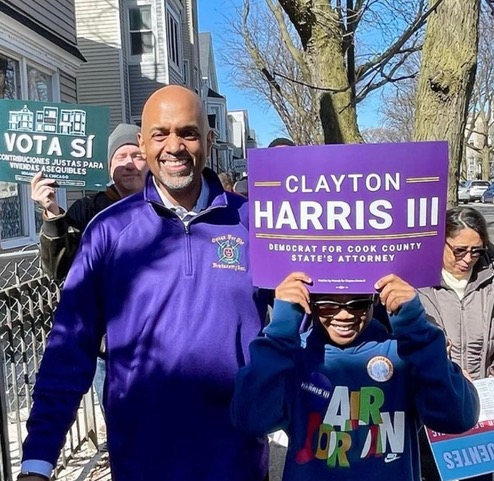
For Harris, running for the County’s top prosecutor spot is one thing, but he had to think about getting the job and facing conservative voters and Cook County residents as a Black man with two boys. That could present another problem.
Those thoughts and a tough campaign trail haven’t made it easy for someone running for a high-profile, elected office for the first time as a college-educated Black man.
So, when a Crusader journalist opened the interview with a question that asked him how he was doing, it was time for Harris to let it out.
“I’m doing ok,” he said. “I actually feel good, rejuvenated and recharged. Last week you saw them put in almost a million dollars [in Burke’s campaign] in one day. These are alt-right extremists in her campaign. At first, I said wow, a million dollars against me. We got to win this. They’re trying to take us backwards. We can’t allow that to happen.”
Harris’ voice grows assertive when he talks about neighborhoods like Washington Park, where he lives with his wife and two sons.
“It’s not so much that we deserve safe neighborhoods. We demand safe neighborhoods. We don’t just deserve good policing; we demand good policing. They’re not in conflict with one another. They’re in sync with one another.”
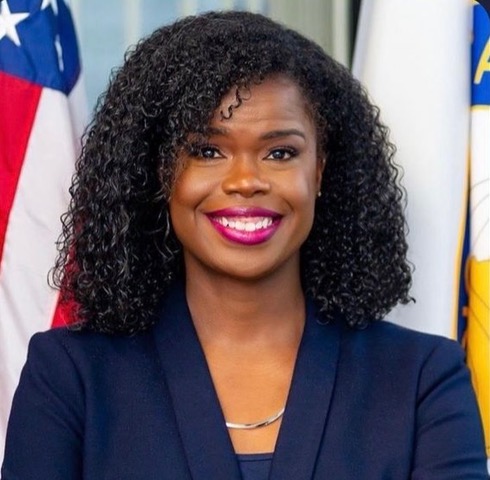
During her terms as Cook County’s top prosecutor, Foxx endured pressure and opposition from the media and far rights groups that painted her as soft on crime. Tensions escalated after Foxx dropped all charges against “Empire” actor Jussie Smollett, who was convicted of faking a hate crime in Chicago’s Streeterville neighborhood in 2019.
When Foxx announced last year that she would not run for re-election, she expressed deep frustration at being painted as being soft on crime for her progressive policies on public safety.
In his campaign to replace her, Harris said he is ready to handle the pressure his predecessor faced. He said his wife had “hesitations.”
“I’ve taken an extremely careful look at that. Absolutely. This means a lot to me but also means a lot to my family. Am I ready for it? Absolutely. Am I walking into this with my eyes closed? Not at all. Not at all.
“Before I stepped into this campaign, we had long conversations with my wife about what this meant and truly what it boiled down to was how this would impact your kids.”
“Let’s be honest here. There was hesitation. The hesitation was how it was going to affect the boys. They are 9 and 11. They have friends that are aware, and my wife says, ‘Are they going to be able to handle it.’
“I’m not even elected, and people are saying bad things about me already. It’s a lot. But we talk to them so that they understand what’s going on and if they have any questions, they need to talk to us. There’s a negative ad out about me and they ask questions. I told them to ask me questions, please ask me questions. And they’re like, ‘Well, that’s not true is it?’ I said, ‘Well you know your dad.’”
They said “I don’t want to get into fights at school or anything like that. I can protect myself. So, that was the hesitation and how it would impact the boys.”
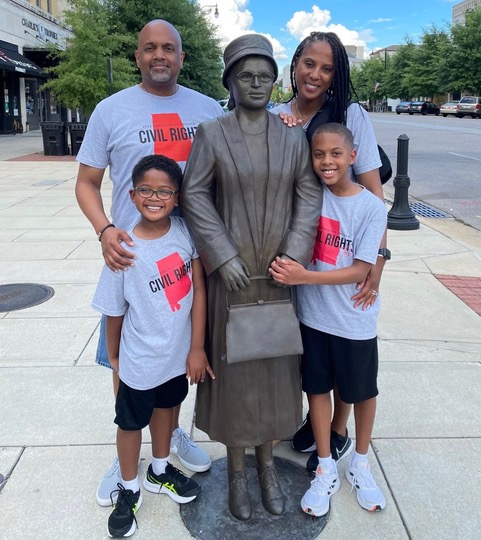
Harris also said being Cook County’s top prosecutor had its advantages, too.
“When talking about the impact of this election, I’m doing this for my boys as well. We live in Washington Park, but we hear gunshots. And we’re not the only ones. More people are living in areas where they hear gunshots. So, I’m running for our safety as well because no one should have to hear or do that. But I’ve been pulled over before driving while Black. So, I’m running for their justice as well.”
Harris said he wanted to run in 2008, when Cook County State’s Attorney Richard “Dick” Devine announced he wasn’t going to run again after serving three terms since 1996. He told the Crusader how he decided to run for the top job.
“I have always had a love for this office,” Harris said.
“So, when there were conversations that Kim Foxx might not run again, I talked to her. I talked to my wife. I talked to my pastor. I talked to my wife again and then we sat down with President [Toni] Preckwinkle. I had to convince her that I was the right person.
“From the things I heard from President Preckwinkle, she and Kim Foxx had a conversation, and she was like ‘you got to find the right person to come in behind you. But my conversation came after I made a decision that this was the right thing for me to do.’
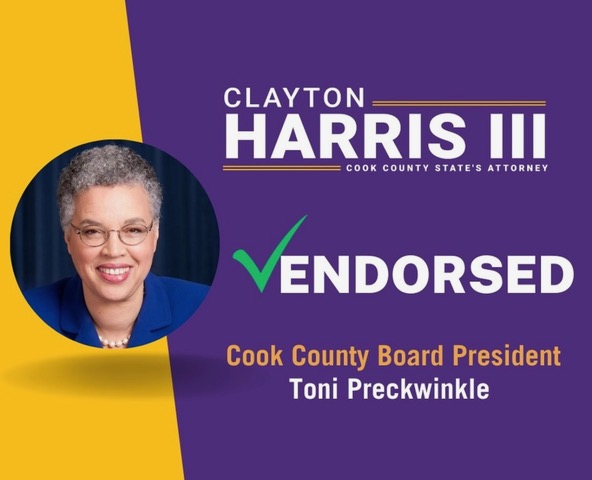
“Then I had to go and convince all the [Democratic] committeemen. Then I had to go through slating. So, this is something I had to work for. I’m very, very proud that I earned the endorsement of President Preckwinkle, but I was unanimously slated to be the Democratic choice [by the Cook County Democrats].”
Harris’ life experiences have helped him stay grounded in his purpose as a candidate for the office.
He recalled how he was pulled over by a cop who accused him of running a traffic light years ago. He was a prosecutor living in Humboldt Park and driving to the Leighton Criminal Courthouse for a hearing before a judge. The incident caused him to be late for the hearing.
Harris said he told the officer that he didn’t run the traffic light.
“I didn’t. I was like, say what you want, but I’m not going to argue with him. I got a ticket anyway.
“If you have never been pulled over before and you know you didn’t do anything wrong, I don’t think people truly understand the humiliation that comes with that.”
Harris acknowledged that Foxx’s office is misunderstood by some, with an image problem when it comes to fighting crime.
“Under Foxx, the State’s Attorney’s Office focused on wrongful convictions and other things. It swung the other way with Anita Alvarez, whose office focused on arrests and prosecutions,” he said.
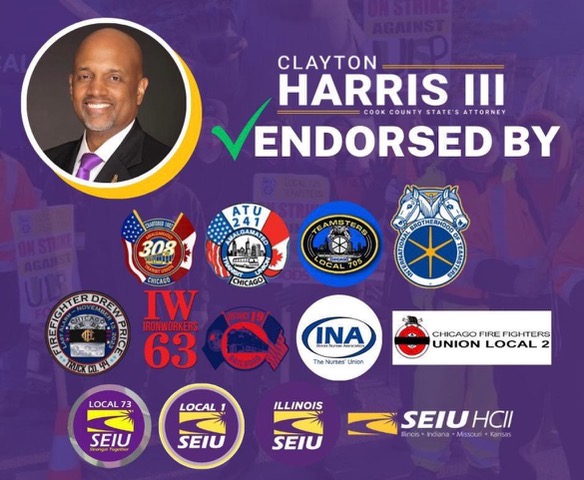
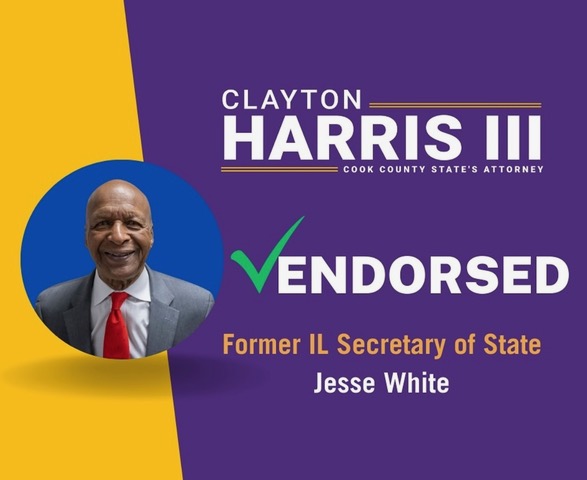
Harris said he’s up to the challenge of changing that image by striking a balance between prosecuting criminals and pushing for police accountability.
“We acknowledge that the things Kim Foxx has done have been nationally replicated. So, we don’t go backwards on that, we build upon it.
“One of the things we especially need to do with the Conviction Review Unit, and post sentencing and other units that focus on wrongful convictions, is a consolidation of these offices and resources so that one is not waiting for the other one to happen, so we can do things on parallel tracks.
“I met with the Innocence Project and the Exoneration Project, and one of the complaints or frustrations they had is sometimes they have to choose on which path they want to go to see whether someone’s exoneration or conviction should be looked at. And because of the resources in the office, sometimes one pauses so they’re not duplicating efforts.
“I understand what they’re talking about, and I also understand from the advocates who say well if these are going at the same time, one might go faster than the other one, and they can choose which one you move. You can still be delaying the time someone is in jail longer than they would be.”


